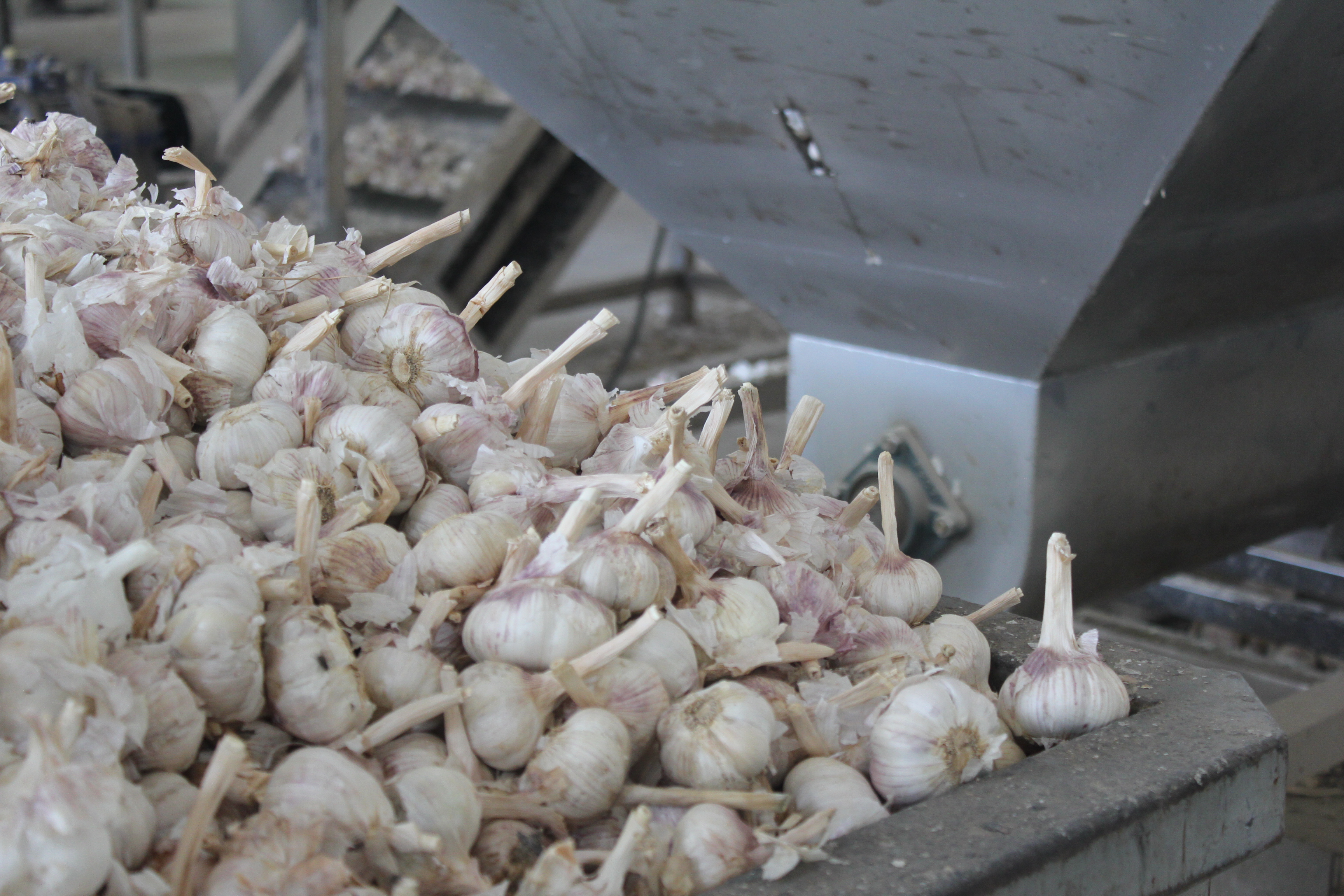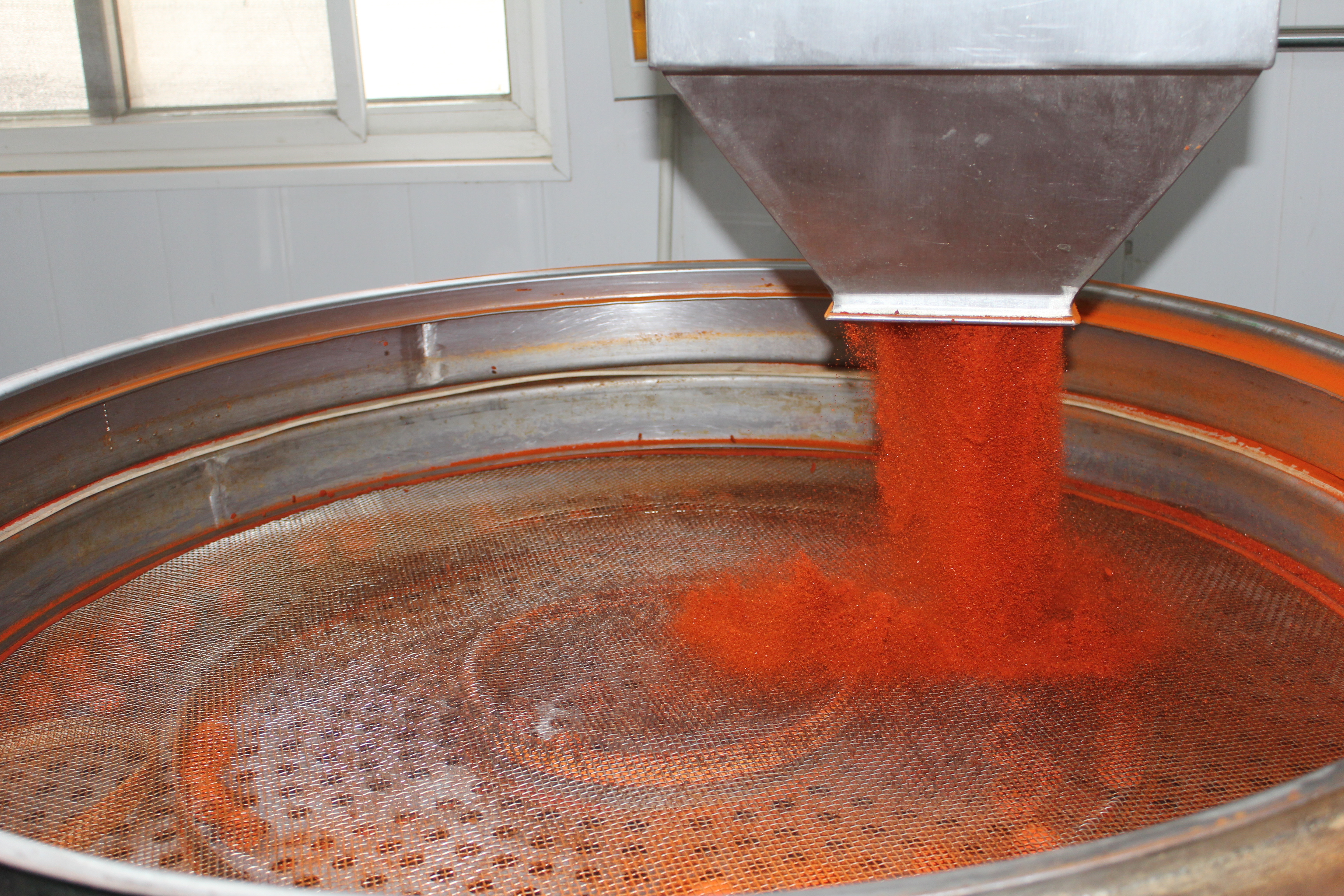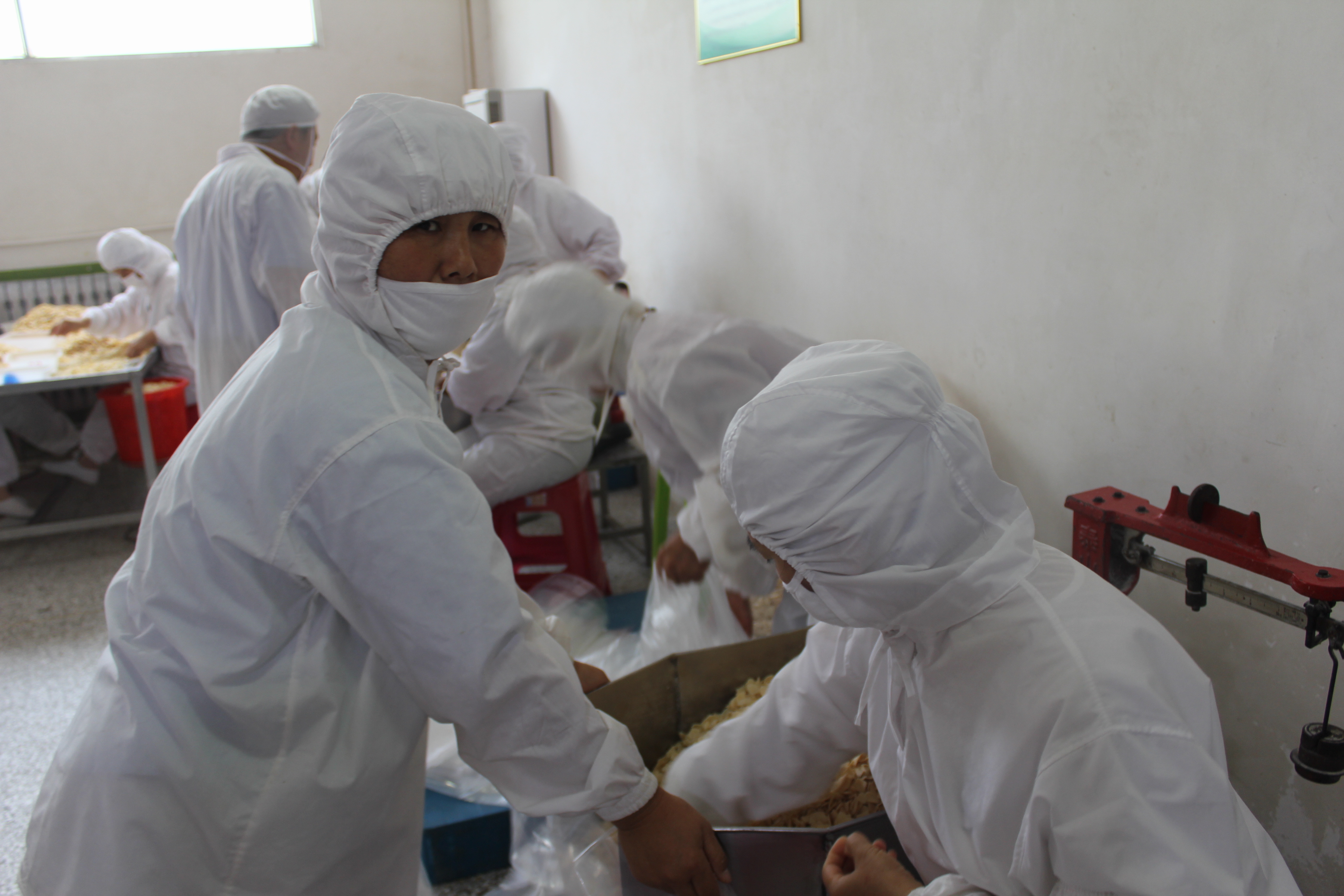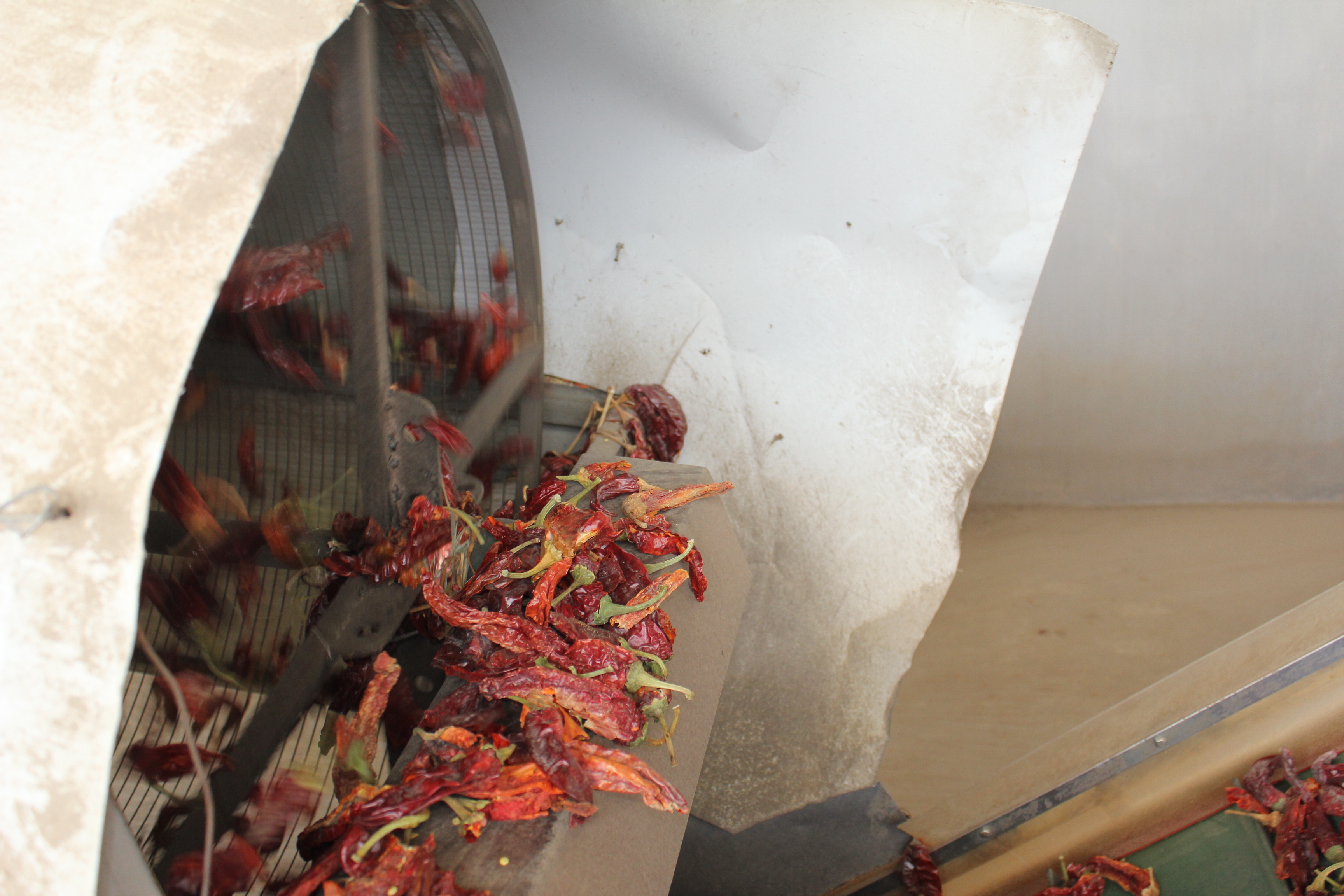Ni hao is Chinese and means simply “Hello”. It is used in China as a friendly greeting. During our audit journey through China, the land we import many spices from, such as chili, paprika and garlic, we were often welcomed in a very friendly way from our suppliers and potential new suppliers. Ten audits in nine days, right through the provinces of Henan and Shandong – 2200 km by car, train or airplane. We learned a lot. Get more information here about our experience in a land that is as big as Europe.
Anyone who still thinks that China is a Third World Country severely underestimates this country, being about the same size as entire Europe. Formally, the World Bank still ranks this country as a developing country, but mainly because the average income in China is comparatively low at EUR 7.400 P/A.
Since 1978, China has developed from a central-planned economy to a market-based economy. With an average economic growth of 9 %, China is one of the largest world economies, after the United States. The thirteenth five-year plan (2016-2020) foresees – besides environmental projects – large building projects to provide adequate housing in urban areas for rural population. New neighborhoods and in fact entire new cities with skyscrapers are following suit to new plants, streets, dams or rapid transit railways. Big cranes are present everywhere. The motto: building one floor in two days!
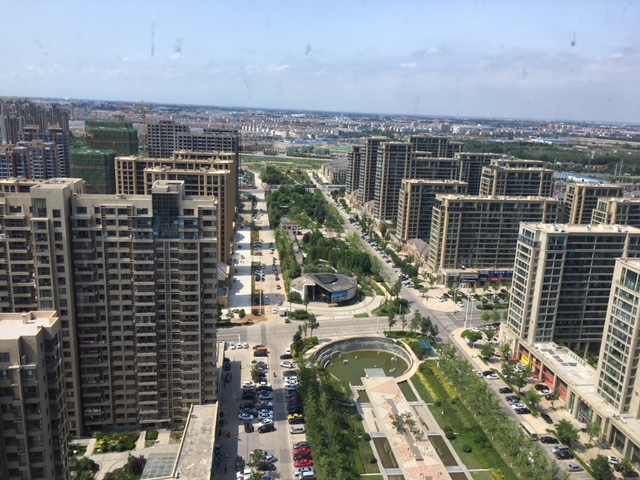
Jiazhou
The start of our journey is the new city of Jiazhou. This entire city did not yet exist some years ago, but now consists of skyscrapers with hotels, banks, offices and apartments. Qingdao, the sixth-largest harbor in the world and the fifth-largest harbor in China, is only 30 minutes away – the Gateway to the World! The port of loading of Paprika, Chili, Garlic and other products, which are shipped to Europe!
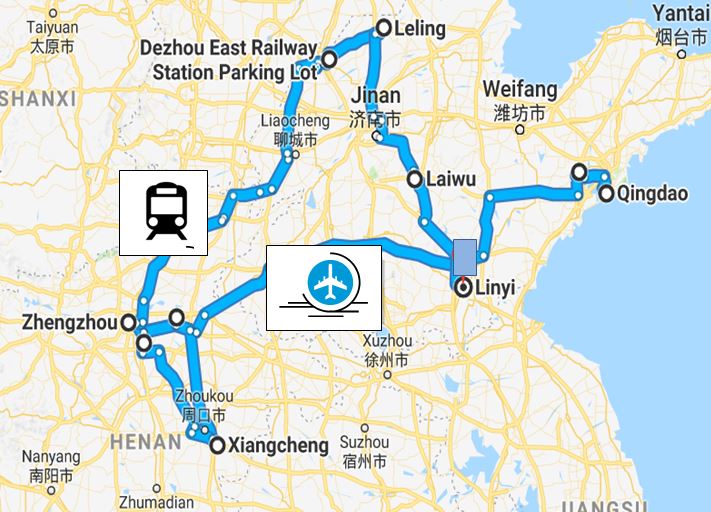
Travel Route of AKO Team
Paprika Processing in Qingdao
China produces 140 K mt of Paprika annually. This comes up to 75 % of world production. The main cultivation area is the province of Xinjiang, in the western part of the country. Processing and exporting takes place in Shandong, Eastern China. The most important harbor in this area is Qingdao.
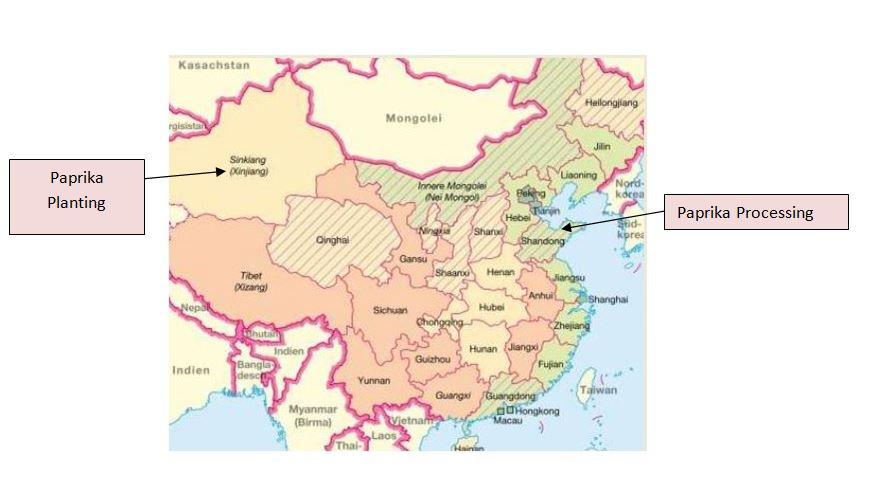
Planting & Processing
We visit some paprika processors. Large and new operations, huge factory premises of more than 30 – 50.000 m², provided for free from the Chinese Government. In the early days of new companies, the Government also exempts companies from tax. Thus many new companies had been established, some under the umbrella of a larger one.
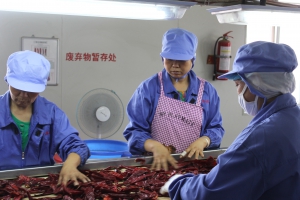
Sorting
The new buildings are big and fenced. The administration building, situated on the left side of the premises, the entrance lobby impressive for it generous proportion. The Company logos are placed there, always in oversized Chinese letters. A road leads deeply down to warehouses and production halls. New and very much maintained.
Production of Chili and Paprika is similar: goods are washed, cracked, grinded and sieved. Some suppliers have a microwave equipment to reduce germs, only a few have a steam-sterilizing machine going up to higher temperatures and efficacy. One thing, however, all suppliers have in common: a comprehensive range of equipment to assess foreign bodies in the products, such as magnets, optical cleaners or metal detectors.
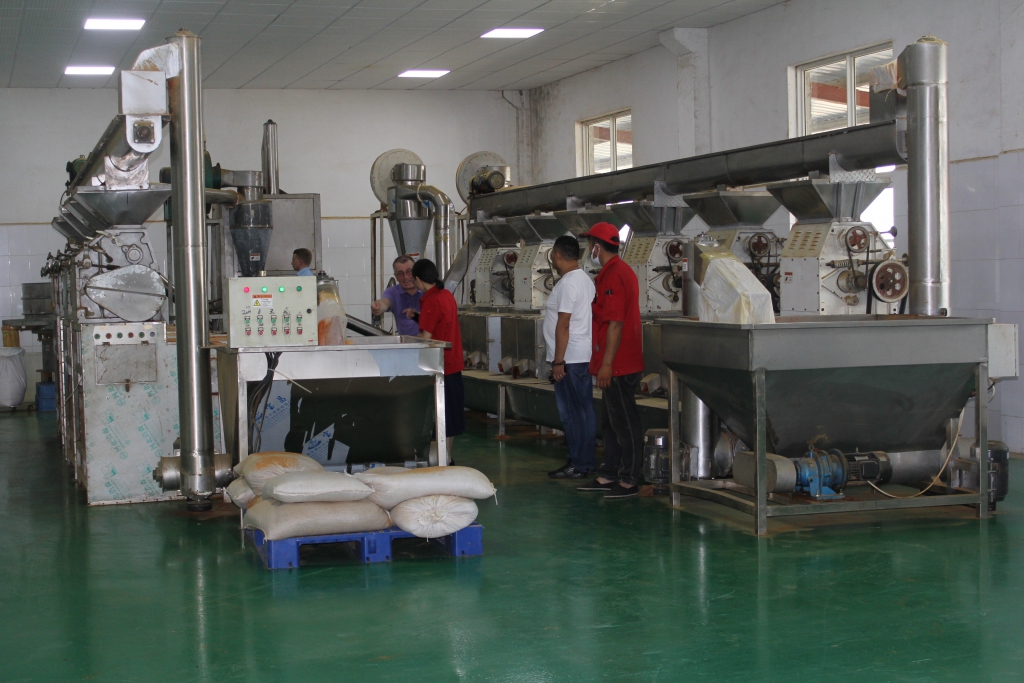
Paprika Mills
Our hosts are certified without exception, sometimes even multiple certified according to HACCP, BRC or ISO.
They have a high standard. To visit a production of Paprika in this area for an audit means to calculate extra time to cloth oneself with the desired hygienic dresses: hair nets and face mask, coats, gloves and over coats for shoes. Hygienic channels with dust blowers are a kind of standard for the companies we visited, even if no production takes place at that moment.
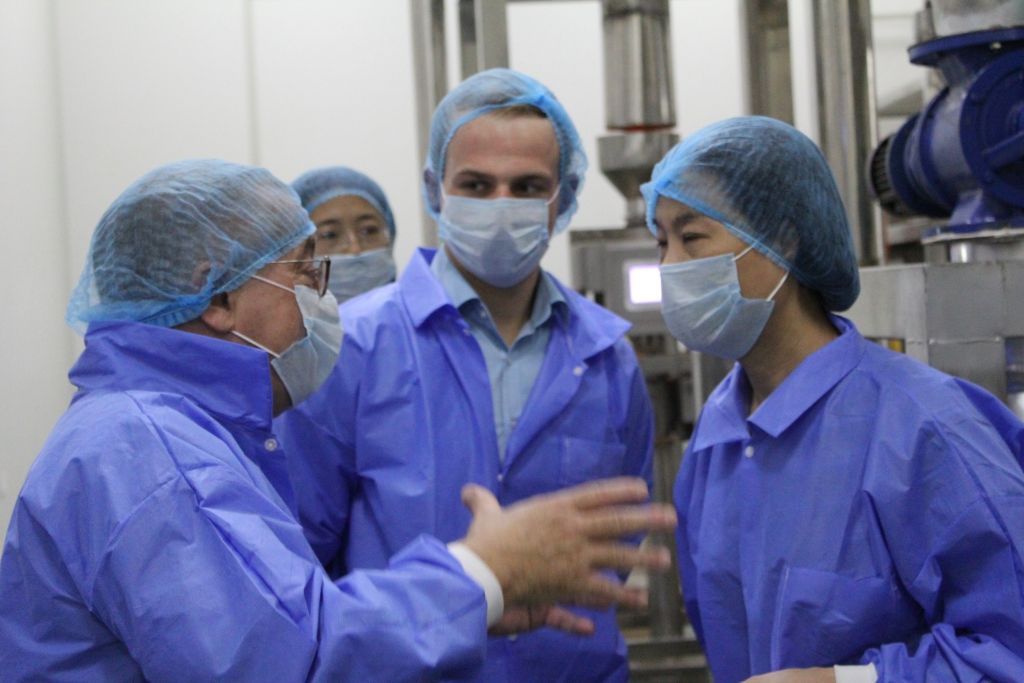
Olaf Richter und Moritz Richter discussing with supplier
Nearly all of the companies maintain their own laboratory.
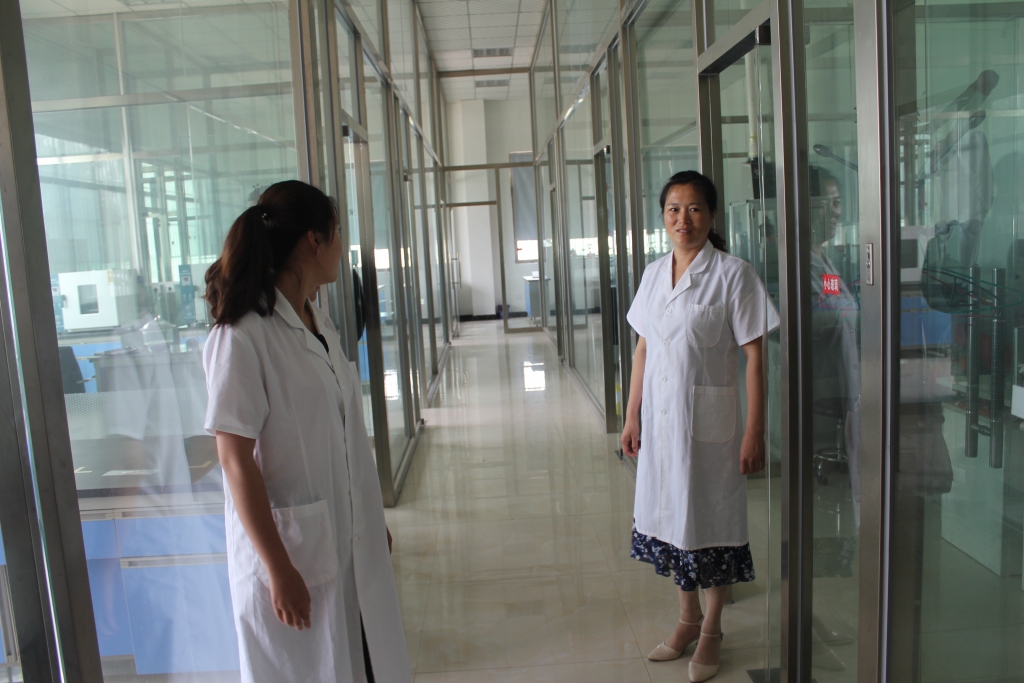
well equipped laboratory
From Qingdao to Zhengzhou
The next step is a domestic flight with Shandong Airlines to the Province of Henan. The quickest way to bridging 750 km von Qingdao to Zhengzhou. From here we go by car to Garlic City.
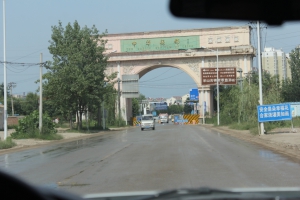
Welcome to Garlic City!
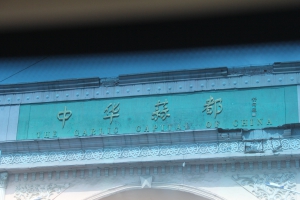
Garlic City
China is the world largest producer of fresh garlic (approx. 84 % of the worldwide output) More than 2 million farmers plant garlic in China. Main cultivating areas are Shandong und Henan. The largest part of the harvest is consumed in the domestic market. Only 10 % of the fresh garlic is dehydrated and exported. It is said that China exports annually 220.000 mt of dried Garlic products.
Stringent Governmental environment regulations led to enormous changing in the garlic supply chain. Because washing and dehydration of garlic need a lot of fresh water, the Chinese processor had been forced to install their own water treatments plants. As those units are very expensive, many processors stopped producing their own garlic flakes (= fresh garlic sliced, washed and dehydrated) Instead of it, they now buy garlic flakes from Dehydration companies, to produce garlic granulate and powder.
Some of these dehydration companies are situated in Garlic City. Farmers supply fresh garlic in bags to traders of this town. Traders stack garlic on pallets and deliver them to the dehydration factory.
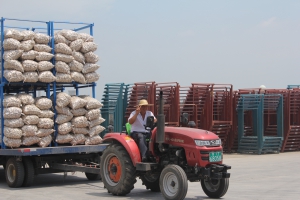
Delivery at Dehydration plant
In the dehydration plant, fresh garlic pulps are sliced. Root fragments, membranes and skins are removed. The product is washed and afterwards dried in huge belt-dryers. After drying is finished, the garlic flakes only have moisture of 7, 5 %. At the end, flakes are packed. All actions are fully automated and take place in long production lines. After packing, garlic flakes as a semi-finished product are ready to be sold to garlic granules and powder processors. Important for us to see was, that this outsources process can be traced and tracked. Washing and dehydration are certified processes. Productions were clean and safe.
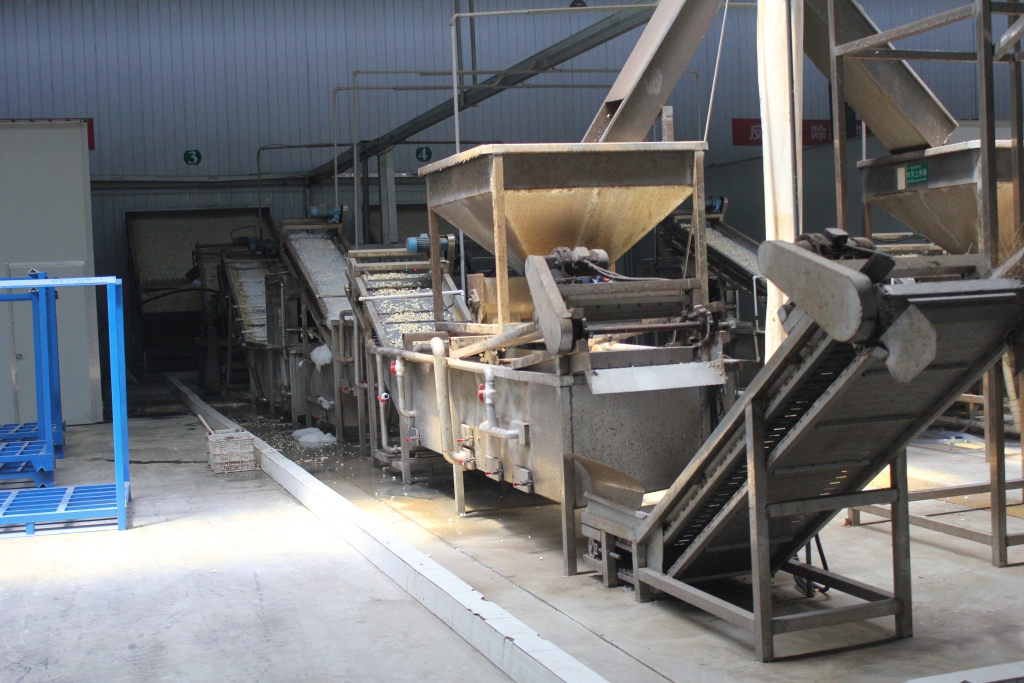
Garlic Washing
Garlic Granules and Garlic Powder
To see more, we went further in the north of these provinces, using the rapid train of China.
Again, we visited new companies – again, we met processors with modern machineries. The delivered garlic flakes are grinded here to garlic granules and garlic powder with stainless steel machineries, fully automated processes, color selectors, magnets, and metal detectors – many of them are of European origin. Despite of our extensive audits lasting for hours, we did not find any divergences. Nothing to worry us.
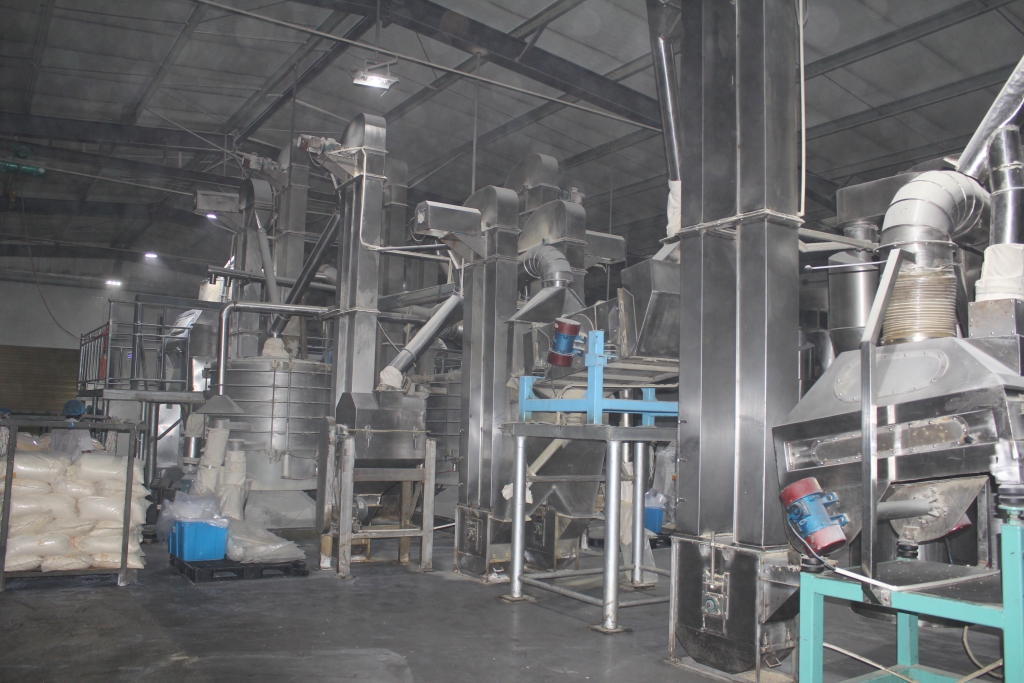
Garlic Processing: foreign body detection, milling, sieving
The Chinese processors are mostly family-owned businesses. The founders were either intellectuals with profound English knowledge or farmers who got rich. Nowadays, the first generation belongs to the “Golden Agers” – means they are just before retirement. The second generation is already in or waiting to step into the company. The sons of the Chinese “one-child generation” are “little emperors” and hope for the family. In many cases, they are a little bit spoiled and under enormous pressure to succeed. They are looking for more self-realization, willing to escape this pressure. In contrast to it, daughters are the new hope for many families: they have a good education, are cosmopolitan, speak English very well, know the requirements of the western customers and have access to their needs.
They rather under stand quality and food safety requirements and the European way to think about it. And they are able to communicate with the Chinese staff and to train them.
Organic Spices from China
On our last day, we visited a Chinese Organic Supplier of Spices. Since 1992, the founder comes up with the idea of producing healthy organic products. He early had a promiximity to the Japanese market with its high demand for healthy and safe products. In any case, this supplier works with contracted farmers and produces Organic Spices, such as Organic Garlic, Chili or Paprika. This company had already been certified according to EU legislation, BRC and others. What more could anyone ask for?
Audit ended up with a Triple A and our supplier assessment was very good. If prices will be in line, we could be happy having an option to buy new organic products for our range.
After nine days, 2.200 km and 10 Audits it is now time to say good-bye to China. We were very tired, because the long trip and many production audits in hot temperatures (sometimes more than 35 Degree Celsius) are very exhaustive. But we now reassured that China has much more knowledge about European requirements than expected and is able to meet them.

